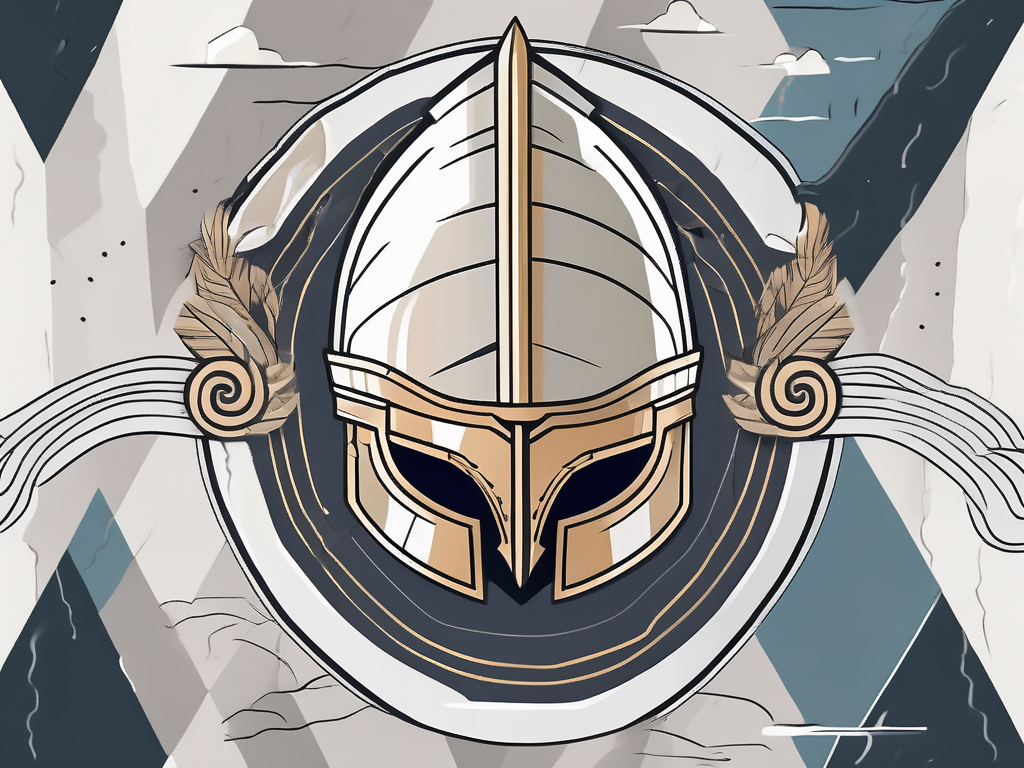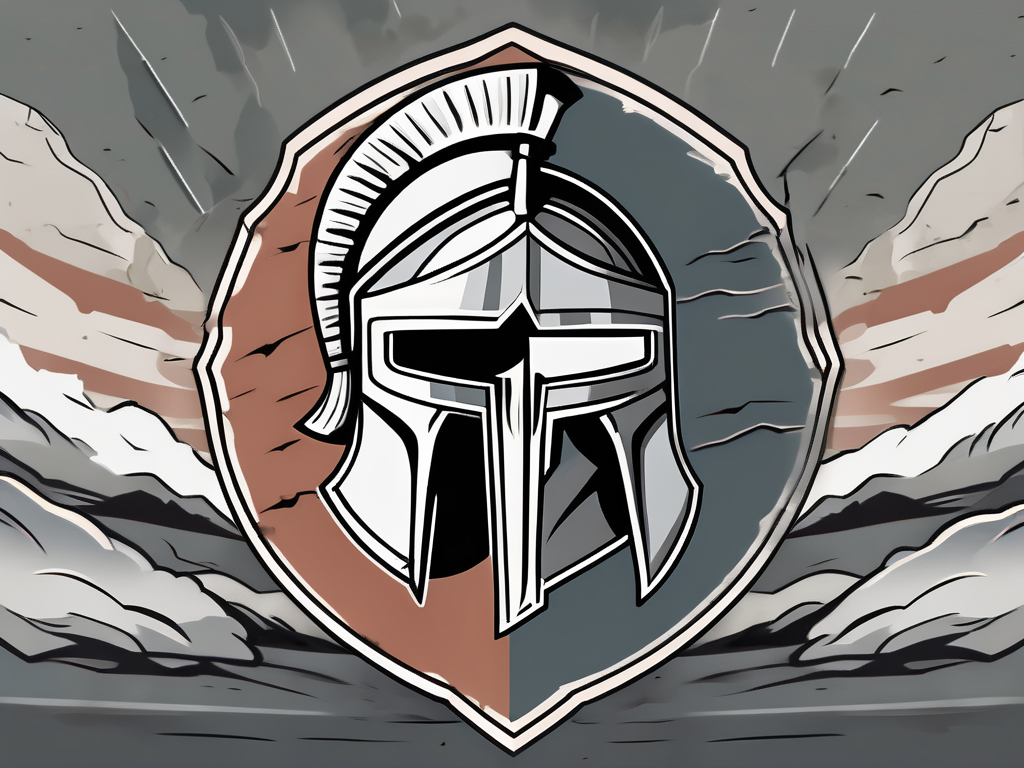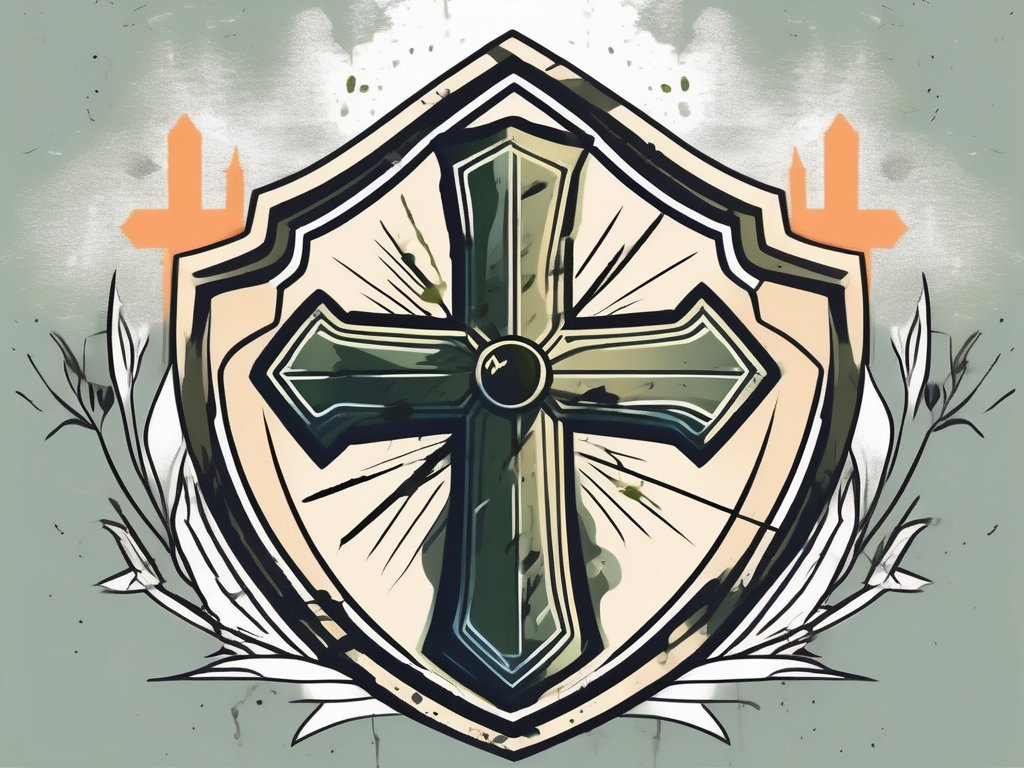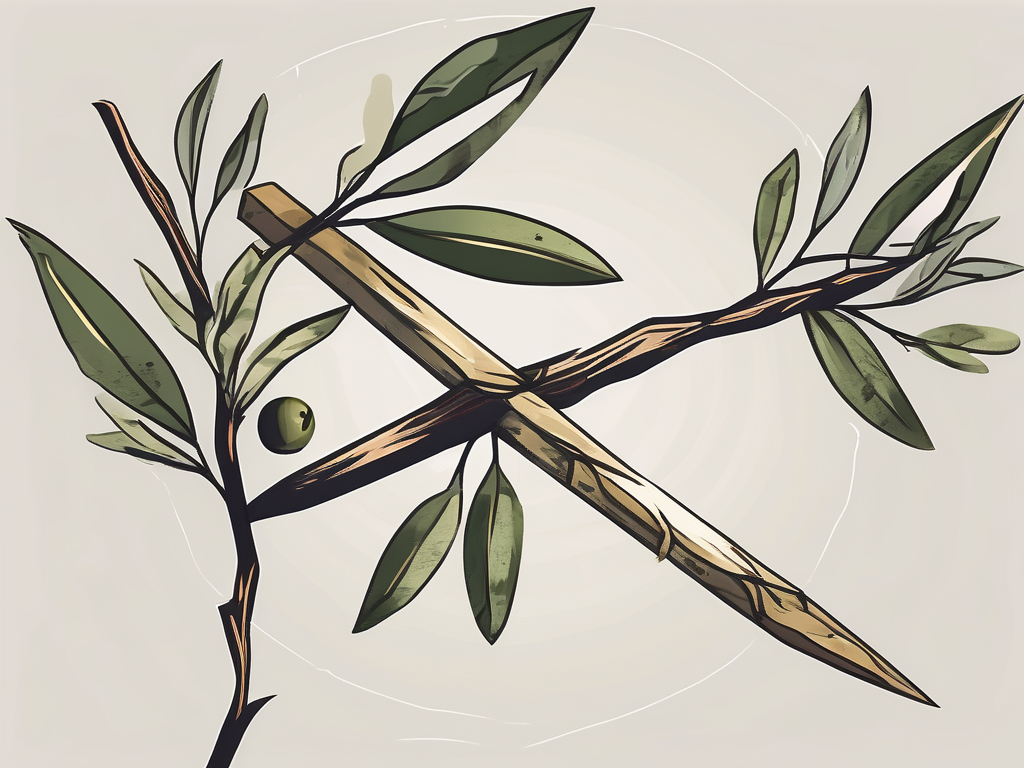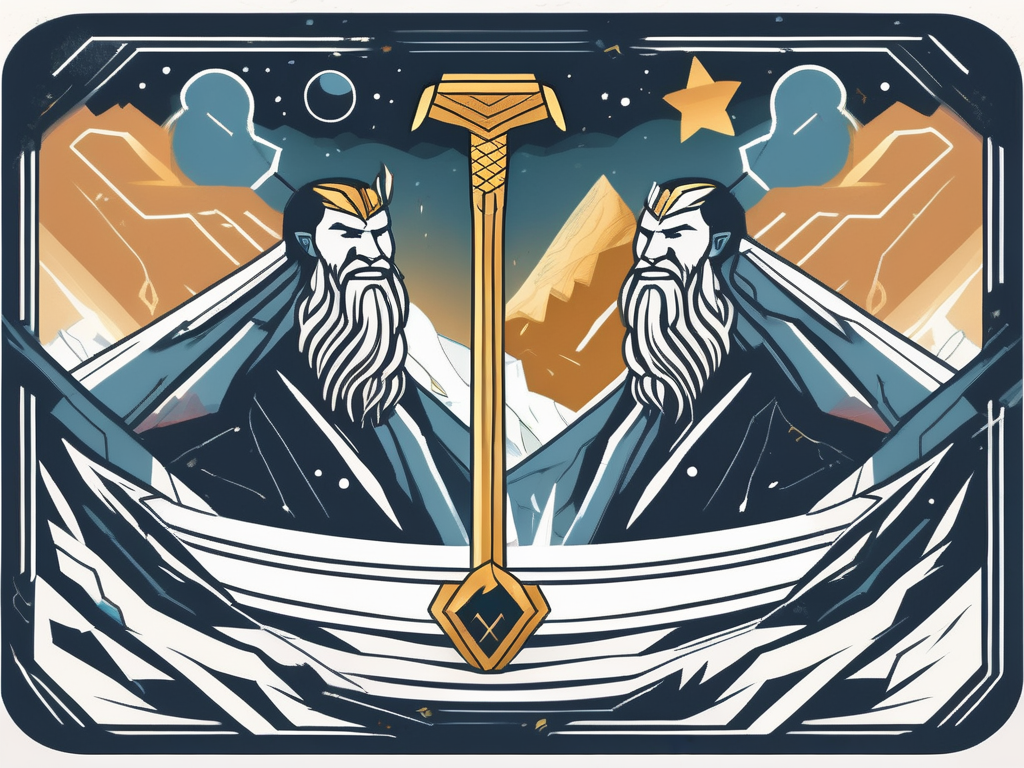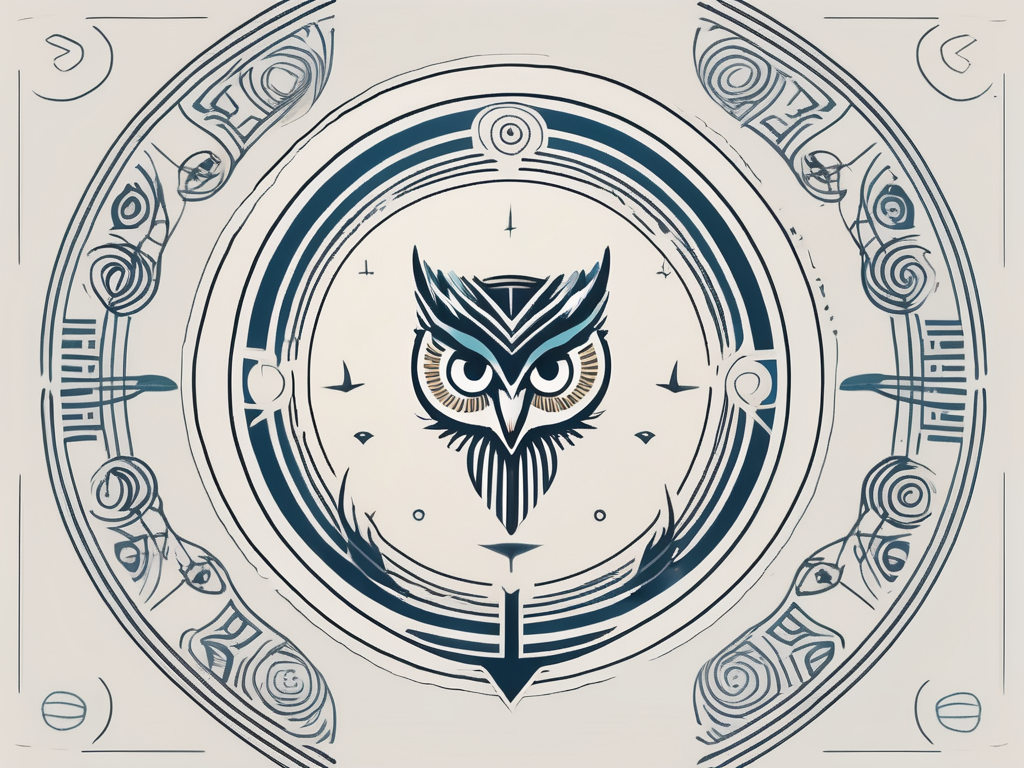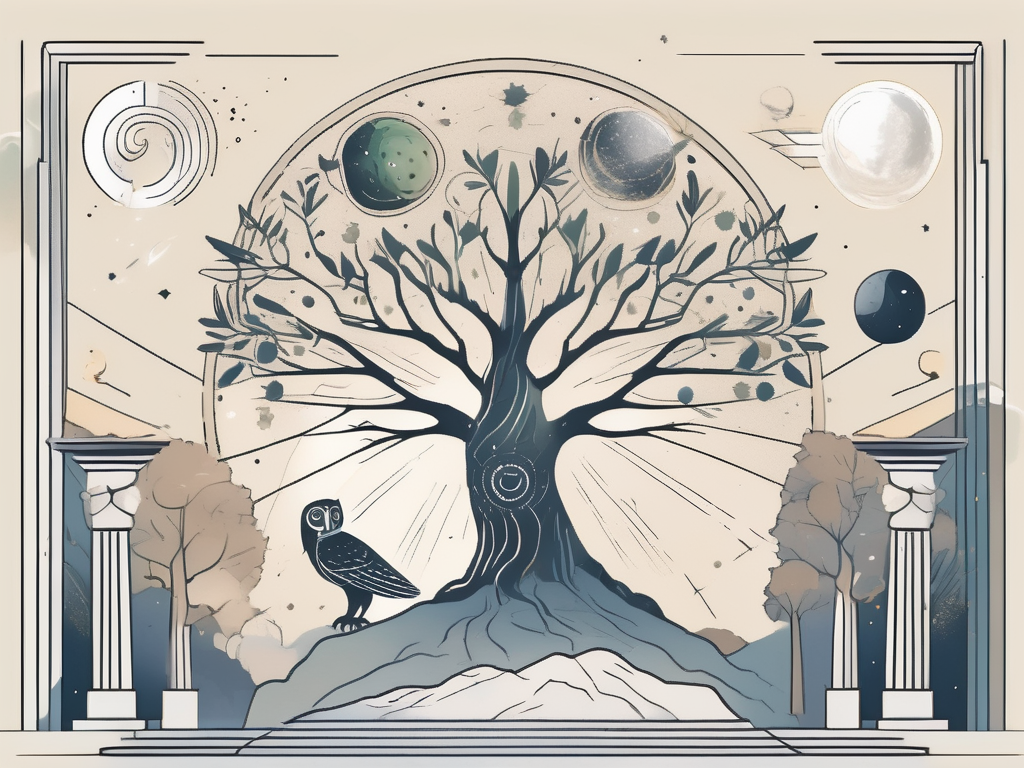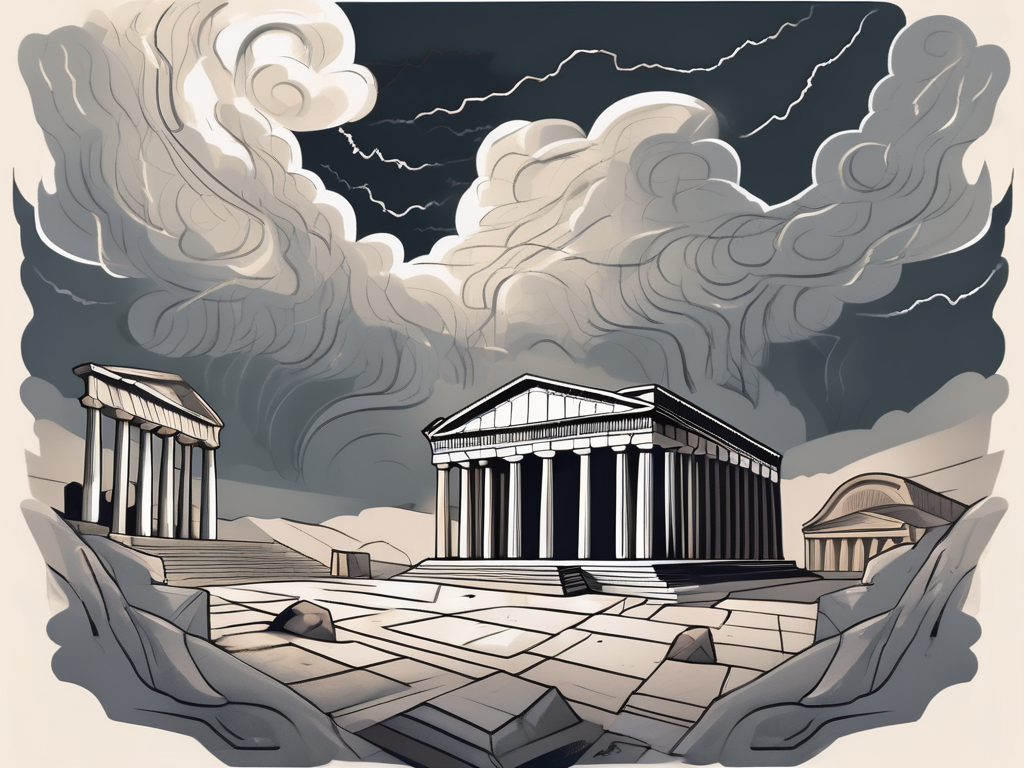In the world of Greek mythology, war holds a significant place. The tales of epic battles, heroic feats, and divine interventions have captivated our imagination for centuries. To truly understand the role of war in Greek mythology, we must delve into the importance of war in ancient Greek society and explore the concept of war deities. Among these deities, one stands out as the epitome of war and violence – Ares.
Understanding the Role of War in Greek Mythology
Ancient Greece, like many other ancient societies, was immersed in a culture that valued warfare and heroism. War was perceived not only as a means to secure territory and resources but also as a reflection of courage and honor. The Greeks believed that engaging in battle was the path to glory and eternal remembrance.
From the great wars against the Titans to the legendary battles of the Trojan War, war played a central role in their mythology. It was through these tales that the Greeks sought to explain the complexities of human existence, the forces that shaped their world, and the nature of their gods.
One of the most captivating aspects of war in ancient Greek society was its deep integration into the fabric of their daily lives. War was not simply an event that occurred sporadically; it was a way of life. Men were raised from a young age to become warriors, honing their skills in combat and learning the art of warfare. The entire society revolved around the ideals of strength, bravery, and martial prowess.
The Importance of War in Ancient Greek Society
War was deeply ingrained in the fabric of ancient Greek society. It was the ultimate test of masculinity and courage for men, while women played essential roles in supporting the warriors and grieving for the fallen. The spoils of war, such as wealth, land, and slaves, also had significant societal implications.
But war was not just about physical conflict and material gain. It held a profound symbolic meaning for the Greeks. Beyond the practical aspects, war was intimately tied to the Greek concept of honor, known as kleos. This honor was earned through fearless combat, heroic deeds, and the willingness to sacrifice oneself for the greater good. It was this pursuit of kleos that elevated warriors to a divine status, commemorated in stories and epic poetry.
One cannot discuss the importance of war in ancient Greek society without acknowledging the role of warfare in the formation of city-states. The Greeks were fiercely independent, with each city-state having its own unique identity and government. These city-states often engaged in conflicts with one another, seeking to expand their territories and assert their dominance. War, therefore, became a means of establishing and maintaining power in the Greek world.
The Concept of War Deities in Greek Mythology
In Greek mythology, deities were known to personify various aspects of human existence. War was no exception. The Greeks attributed the chaos and violence of war to a specific pantheon of gods and goddesses. These war deities were believed to guide, protect, and empower warriors.
The most prominent and ferocious among them was Ares, the god of war. Ares stood as a representation of the brutality and savagery that inevitably accompanied armed conflict. Known for his fierce temperament and insatiable thirst for bloodshed, Ares was both feared and revered by the ancient Greeks. Warriors would often invoke his name before battle, seeking his favor and protection.
But war deities were not solely associated with destruction and chaos. Athena, the goddess of wisdom and strategic warfare, represented a more calculated and disciplined approach to conflict. She was revered as the patroness of heroes and was believed to guide them with her wisdom and tactical prowess. Athena embodied the ideal of a skilled warrior who fought not only with physical strength but also with intelligence and cunning.
War in Greek mythology was a complex and multifaceted concept. It encompassed not only the physical act of battle but also the ideals of honor, glory, and divine intervention. Through their myths and legends, the Greeks explored the intricacies of war and its impact on their society, leaving behind a rich legacy that continues to captivate and inspire us today.
Ares: The Embodiment of War and Violence
Born of divine union and fueled by unbridled aggression, Ares was the offspring of Zeus and Hera. His birth reflects the chaotic and tumultuous nature of war itself. From an early age, Ares displayed an insatiable appetite for violence, making him a feared and revered figure among both mortals and gods alike.
The Birth and Parentage of Ares
Ares was conceived from the union of Zeus, the king of the gods, and Hera, the goddess of marriage and childbirth. His tumultuous birth was shrouded in secrecy to protect Hera’s honor. As the god of war and violence, Ares embodied the elemental chaos that accompanied armed conflict.
Often depicted as a tall and imposing figure, Ares was characterized by his strength, indomitable spirit, and enduring stamina. He represented the unwavering aggression of war, possessing an insatiable thirst for bloodshed and destruction.
Ares’ Personality and Characteristics
Ares was no mere mortal. His divine nature bestowed upon him an unwavering drive for battle, making him a formidable warrior. However, his lust for conflict sometimes exceeded his strategic cunning, leading to rash decisions and costly mistakes.
Among the Olympian gods, Ares was known for his hot temper and impulsive nature. He reveled in the chaos and bloodshed of the battlefield, finding joy in the merciless slaughter of his enemies. His actions often inspired fear and awe, leaving a lasting impact on those who witnessed his might.
Ares’ Influence and Worship in Ancient Greece
Ares was both feared and revered by the ancient Greeks. However, his influence varied across different city-states and regions. In some areas, Ares was revered as a symbol of strength and valor, while in others, he was seen as a destructive force that needed to be appeased.
His influence can be observed in various cultural practices and religious festivals dedicated to war and battle. In Sparta, for example, the famous warrior society, Ares was widely worshipped and revered as a patron deity. The Spartans believed that his favor was essential for success in military campaigns.
Iconography of Ares: Symbols and Representations
Throughout ancient Greek art, Ares was depicted in various forms, each symbolizing his ferocity and power. These representations serve as a window into the ancient Greek perception of war and violence.
Ares in Ancient Greek Art
In ancient Greek artwork, Ares was often portrayed in a manner that highlighted his physical attributes and divine nature. Sculptures depicted him as a muscular and bearded figure, clad in armor and armed with a spear and shield. His piercing eyes and fierce expression conveyed his unyielding determination on the battlefield.
Ares was commonly depicted engaged in combat, fighting alongside mortals or other gods. These depictions aimed to capture the essence of war’s chaos, illustrating the terrifying and destructive power associated with armed conflict.
Symbols and Attributes of Ares
The symbols associated with Ares offered further insight into his reputation and the aspects of war that he embodied. Alongside his weapons of choice, the spear and shield, Ares was sometimes depicted accompanied by his trusted companions – the goddesses Eris (strife) and Enyo (war).
The animals associated with Ares were the serpent and the dog. The serpent represented the cunning and treachery often present in war, while the dog symbolized loyalty and ferocity in battle. These symbols ultimately served as reminders of the multifaceted nature of war and its far-reaching consequences.
Ares in Greek Literature and Myth
Ares’ presence in Greek literature and myth is a testament to the significant role he played in shaping the stories and legends of ancient Greece. Let us explore a couple of these tales.
Ares in Homer’s Iliad
In Homer’s epic poem, the Iliad, Ares plays a pivotal role in the Trojan War. He takes sides in the conflict, aiding the Trojans while clashing with the Greek heroes. Ares’ influence on the battlefield is undeniable, as his presence instills courage and fury in the Trojan forces.
However, his involvement in the war also highlights his unpredictable and impulsive nature. Ares often faces ridicule and reprimand from other gods, who question his excessive love for violence and his reckless disregard for the consequences of his actions.
Ares and the Tale of the Golden Fleece
Ares’ involvement in the tale of the Golden Fleece further conveys his role as a catalyst for conflict and turmoil. The quest for the Golden Fleece leads to a series of epic encounters, pitting heroes against monsters and gods against gods.
Ares’ actions during this myth highlight his desire for domination and his insatiable thirst for bloodshed. Although he is eventually bested by the hero Jason and his companions, Ares’ influence permeates the narrative, leaving an indelible mark on the quest for the Golden Fleece.
Ares’ Relationships and Offspring
Beyond his belligerent nature, Ares also had significant relationships and offspring that further punctuated his impact on Greek mythology.
Ares and Aphrodite: A Divine Love Affair
One of the most intriguing relationships involving Ares was his passionate love affair with Aphrodite, the goddess of love and beauty. Their union personified the concept of opposites attracting, as their respective domains of warfare and romance seemed inherently contradictory.
This illicit liaison generated various tales and legends, many of which revolve around clandestine meetings and the jealousy of Aphrodite’s husband, Hephaestus. The couple’s turbulent relationship served as a reminder of the complexities of love and war.
The Children of Ares: Gods and Mortals
Ares’ progeny included both gods and mortals, each inheriting his combative nature in different ways. Among his children were the gods Phobos (fear) and Deimos (terror), who accompanied their father on the battlefield, spreading terror and panic among their enemies.
In addition to these divine offspring, Ares also fathered several mortal children, each displaying various aspects of his warlike qualities. One notable example is Diomedes, a renowned hero in the Trojan War, known for his bravery and skill in battle.
These relationships and offspring illustrate the far-reaching influence Ares had on mythology, as his restless spirit and insatiable thirst for conflict left an indelible mark on both the mortal and divine realms.
Ares, the Greek god of war, embodies the chaos, violence, and honor intertwined with armed conflict. From his parentage and personality to his influence on ancient Greek society, Ares’ significance cannot be underestimated. His depiction in art and literature allows us to glimpse into the multifaceted nature of war and its impact on the human psyche. As we explore the complex world of Greek mythology, we uncover not only the gods who shaped the ancient world, but also the very essence of human existence.
